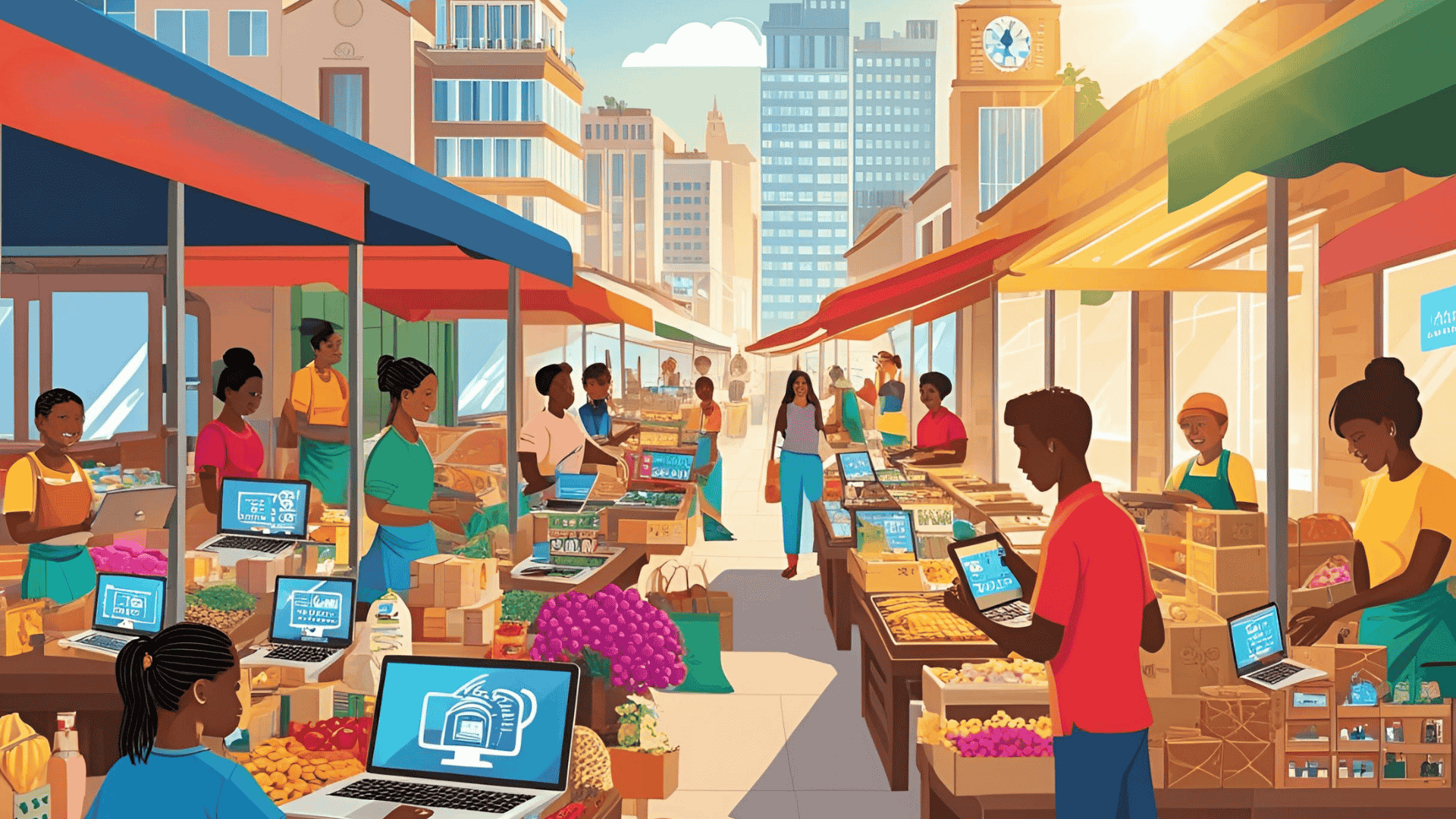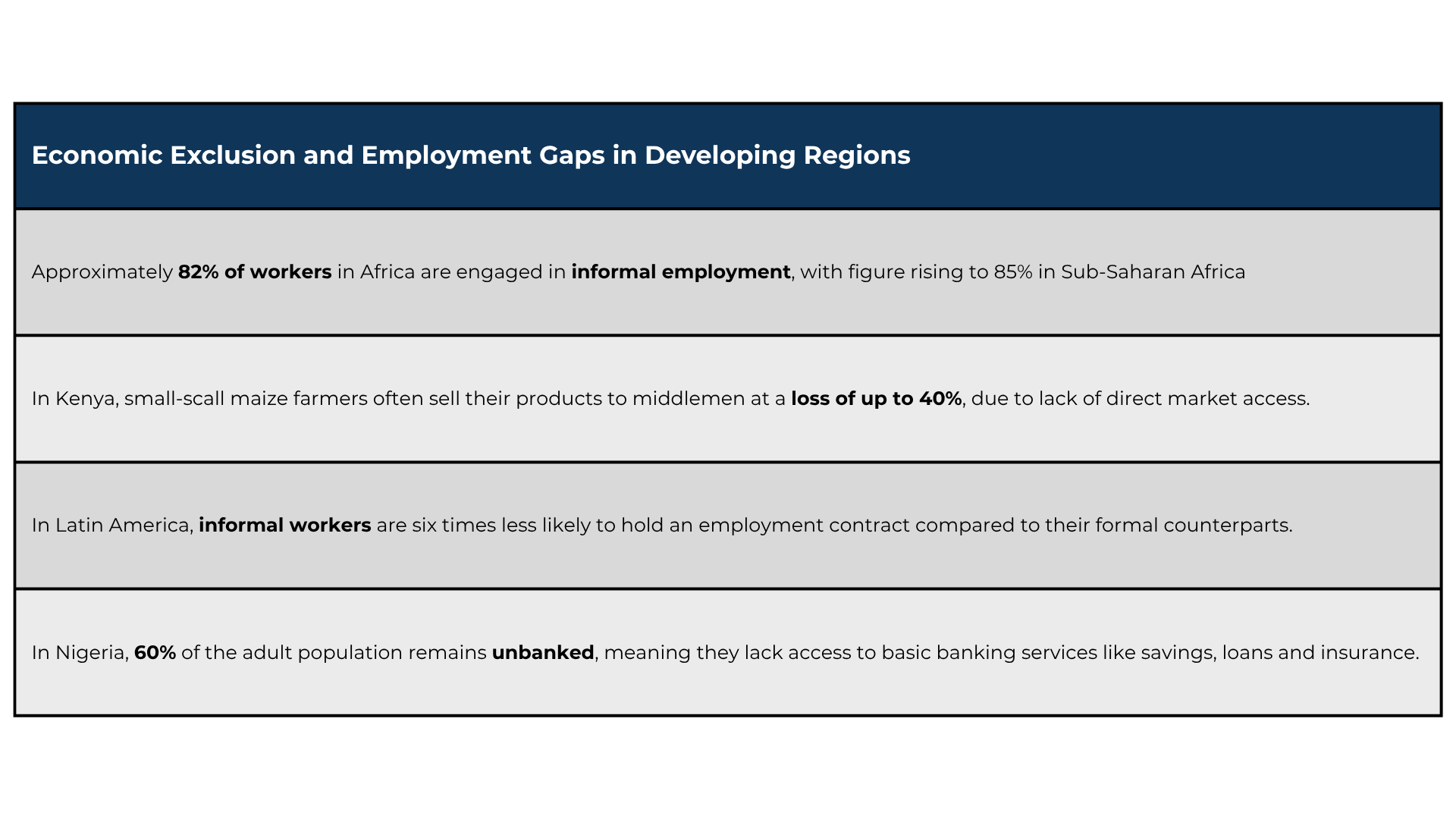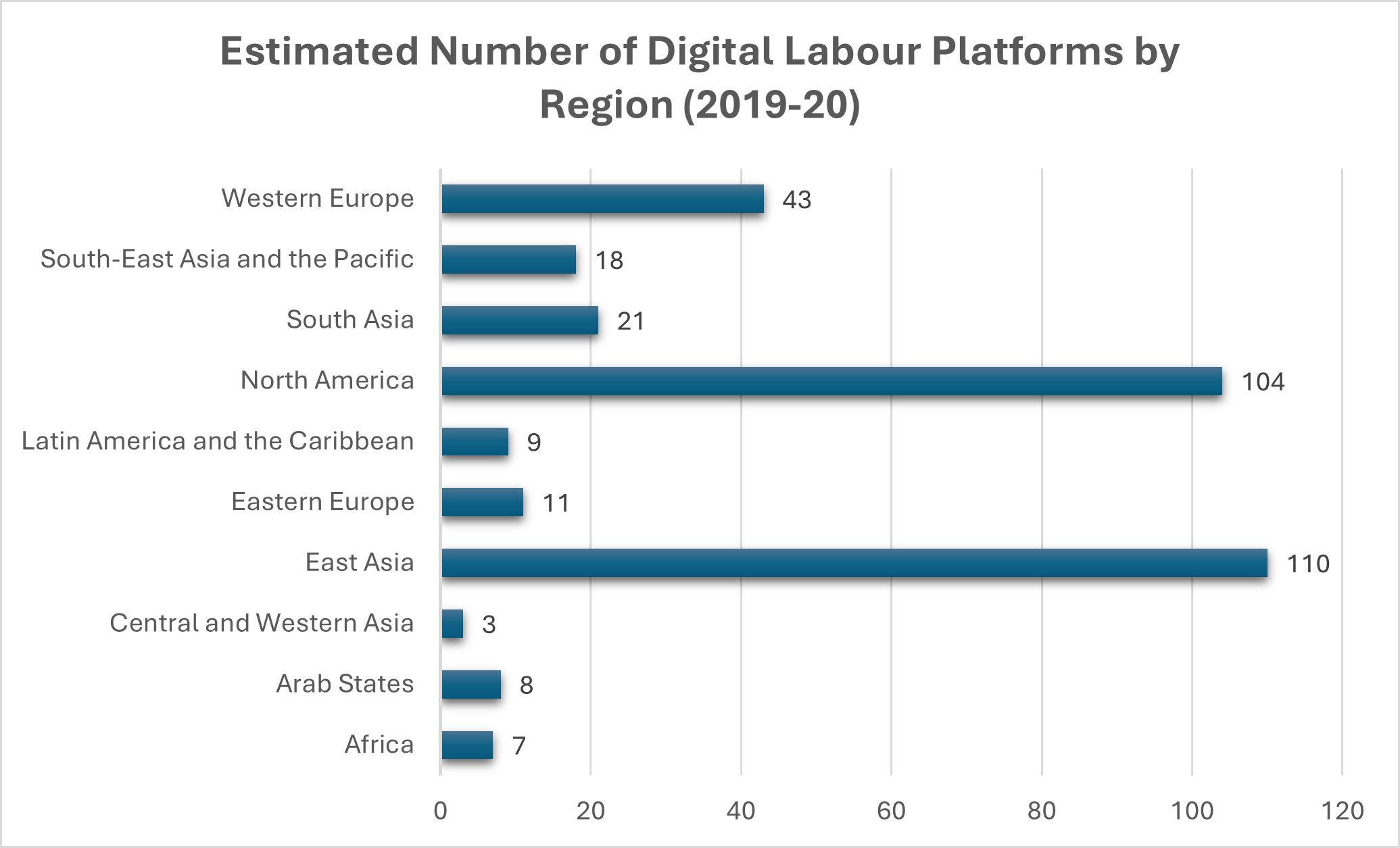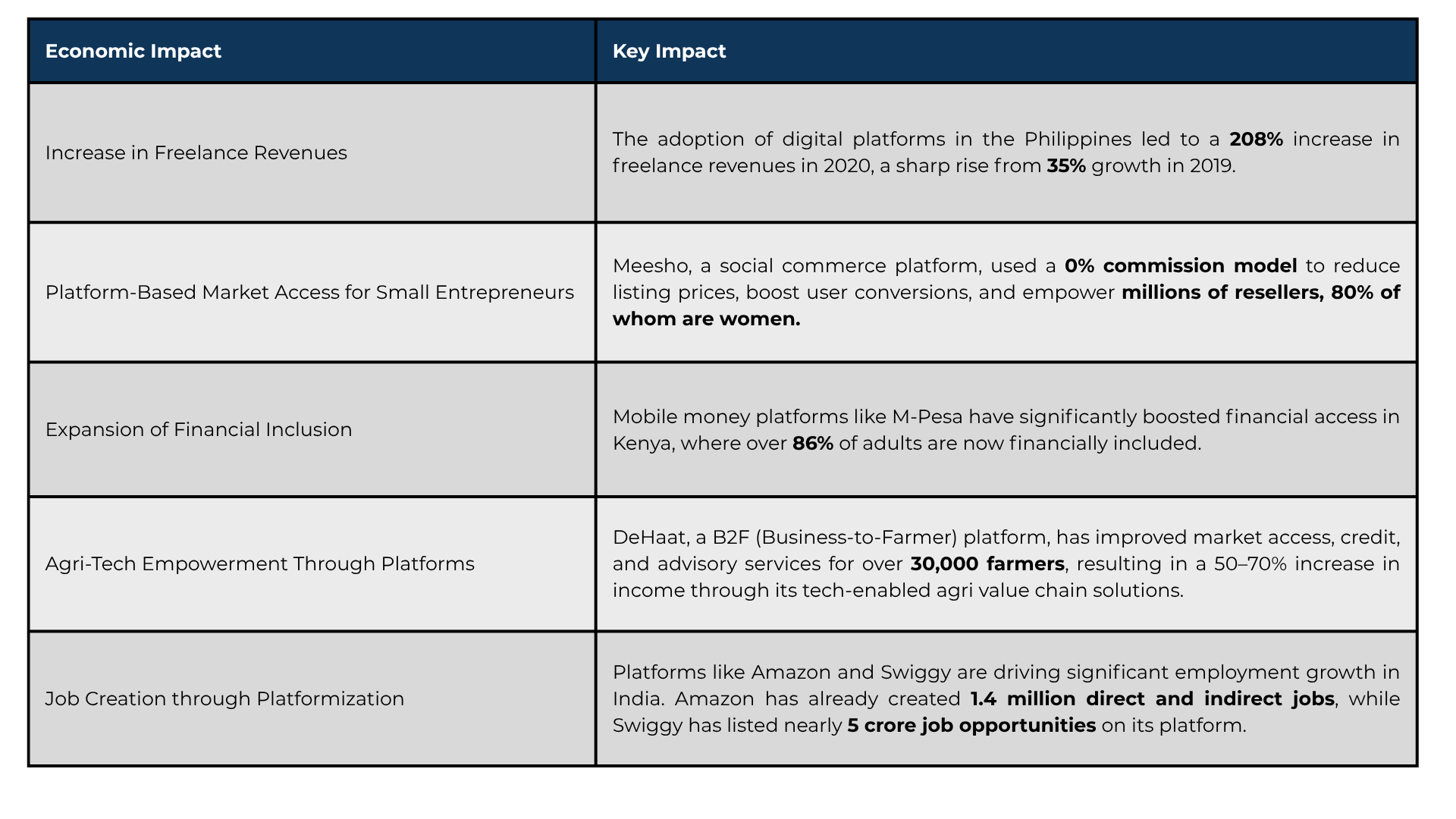
13 May How Platformization is Reshaping Economic Development in the Global South
In many parts of the Global South, the economy isn’t broken—it’s just out of reach. Across Africa, Latin America, and Asia, millions of people are sidelined not because they lack ambition or ability, but because they lack access. Without formal jobs, credit, or reliable markets, they’re left to navigate a patchwork of informal work—selling snacks on street corners, stitching clothes from home, or picking up daily gigs where they can. It’s a way to get by, but not a way to get ahead.

This economic exclusion has long been a quiet crisis, limiting growth not just for individuals, but for entire nations. But a digital shift is underway. Platformization—through e-commerce, mobile money, and gig work platforms—is rewriting the rules. With just a smartphone, people are finding new ways to earn, connect, and grow. Suddenly, a vendor in Nairobi can sell nationwide. A designer in Manila can freelance for clients in London. A farmer in Tamil Nadu can access real-time prices and better buyers.
Platforms as Gateways to Economic Inclusion
Platformization—the growth of online platforms that connect people to work, products, and services—can help solve this problem. These platforms use mobile phones and the internet to link people directly to jobs, customers, or markets, even in areas with poor infrastructure. Unlike traditional businesses, platforms don’t require heavy investments or physical resources to get started. They allow people to access new opportunities and earn a living through apps like mobile wallets, freelance gig work, or online marketplaces.
For example, in India, platform-based work supported 7.7 million livelihoods in 2020–21, and this is expected to rise to 23.5 million by 2029–30. This shift doesn’t just change technology—it opens opportunities for people who were once excluded from the economy, allowing them to take part in the formal market.

(Source: The International Labour Organization)
The graph shows that while platform presence remains highest in developed regions like East Asia and North America, developing areas such as South Asia, Southeast Asia, and Africa are seeing growing adoption—highlighting the steady rise of platformization in the Global South. This shift is driving significant economic impacts, particularly in terms of income generation, financial inclusion, and market access for individuals in these regions.

A Pathway to Inclusive Growth
At the Frost & Sullivan Institute, we believe that platformization is a powerful driver for improving economic access, especially in developing countries. By bridging gaps and connecting people to markets, jobs, and financial tools, digital platforms are rewriting the story of economic access. They empower individuals to rise above traditional barriers and take charge of their financial futures, turning challenges into opportunities.
The future is digital, and platformization is the gateway. By supporting innovation, enabling entrepreneurship, and driving inclusive growth, platforms have the power to reshape economies and create a more connected, prosperous world for all.
Blog by Sakthi Kumararaja,
Associate, Frost & Sullivan Institute
